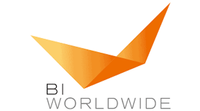How to engage and inspire deskless ‘essential’ employees
In March 2020, one of the most common online search terms was, of course, ‘Covid-19.’ But another search related to a group of employees: ‘Essential workers’
It referred to those front-line employees in manufacturing, distribution, healthcare and retail that provided so many necessary – essential – products and services.
These essential workers came into the spotlight during the Covid-19 pandemic. While it could be argued these employees were previously essential but unrecognised, society is more aware now of this important segment of the workforce.
This attention, however, doesn’t appear to have helped create workplaces for these employees that, in their eyes, are meaningful, motivational and engaging.
According to BI Worldwide’s New Rules of Engagement studies, essential workers are far less engaged and inspired than those who work in offices.
Employees in roles such as production, distribution, retail, healthcare and hospitality are less likely to agree that:
- We have a great company culture where I work
- I’ve received learning or development opportunities to further my career
- I’ve been given the opportunity to have leaders listen to me
- I’ve had a one-on-one meeting with my manager to discuss me or my work
- I’ve received an update from leaders
- I get excellent benefits
- I feel safe expressing my opinion at work
- My unique strengths have been identified and are valued
- My organisation takes steps to listen to diverse points of view
- My team respects me and my unique characteristics
Several of our New Rules of Engagement trend lower if you are a deskless employee:
- Make it personal
- Make money a non-issue
- Be boldly transparent
- Foster belonging
These themes are amplified in the comments of essential employees:
“My supervisor is a person that I have trouble with. He has no trust in anybody. He makes the job difficult for everybody. He takes credit for everything. Makes it hard to want to do your best“
“I continue to feel like I'm punched in the gut , with continuous changes coming from upper management, unclear motives and agendas.“
“I feel that my talents and skills are not fully utilised in my current position. I have many talents and can be productive.“
“The company won’t let me take training that will help me be better prepared for a promotion.”
They are essential employees, yet too frequently are uninspired and demoralised in their workplaces.
When it comes to recognising these important employees, the results are equally dismal. Each of the statements below for essential workers is also significantly lower than other employee groups:
- I am confident that if I do good work, it will be recognised
- Recognition is provided fairly across my organisation
- I have received meaningful recognition in my current job
Employee comments again give a sense of the lack of genuine appreciation in the workplace
“For the most part I feel very underappreciated and underpaid.”
“The management team here does not recognise employees enough. The plant manager will not even speak to us at times; she just acts like we aren’t there.”
“My superior never offers praise, thanks or gratitude. The hourly people are the lowest priority in the company.”
In a highly competitive labour marketplace, engaging and inspiring deskless employees can reap significant benefits. Consider:
- Are we providing a total rewards package that fairly represents their value to our success?
- Do we have a listening strategy that gains feedback from employees and a strategy to follow up, so they know we’re hearing and addressing their concerns?
- Are we communicating important information that helps our team members do their job and helps them know where we’re going—one that offers them opportunities for two-way dialogue?
- Are we building a culture where employees feel truly valued and where there’s a genuine sense of physical and psychological safety?
There are numerous enablement tools that can help you more effectively communicate to these important work groups. And we’ve helped our clients build a business case that shows how investing in programmes to engage deskless employees easily delivers a meaningful return in lower turnover and absenteeism, improved safety and better customer experiences.
To learn more about how BI WORLDWIDE can provide recognition and reward programmes to support your ‘deskless’ employee engagement strategy, click here.
Supplied by REBA Associate Member, BI WORLDWIDE
BI WORLDWIDE is a global engagement agency delivering measurable results for clients through inspirational employee and channel reward and recognition solutions.








